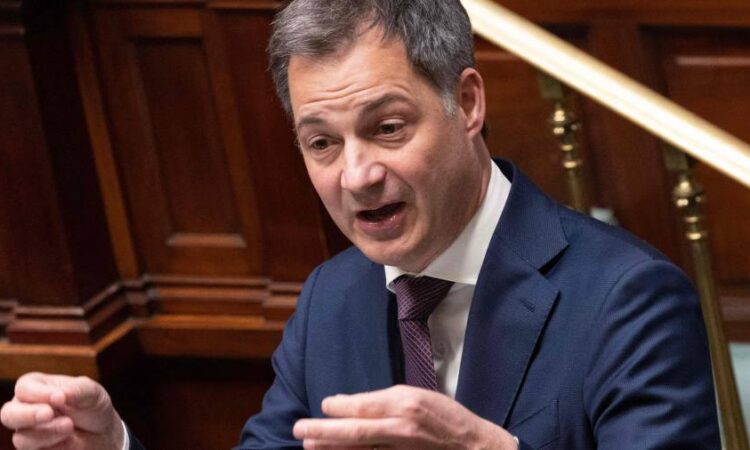
Five months into a corruption probe that shook the EU establishment, Belgian authorities have defended their record amid criticism about the handling of this case.
After the unprecedented raids and arrests at the European parliament and the seizure of €1.5mn in cash in December, the main suspects have all been released under electronic surveillance at their homes in Brussels, while Italy has yet to transfer two other suspects wanted in Belgium. Morocco and Qatar, two countries accused of bribing EU lawmakers to lobby on their behalf, have rejected any wrongdoing and called the case a smear campaign.
“Some of the countries which are related obviously were not happy with the work that our legal services have done,” Belgium’s prime minister Alexander De Croo said last month, “I think our investigators did a good job, which is not always easy because . . . some of the countries obviously have been quite harsh,” De Croo added.
The exchange of documents and paperwork between Belgium and Italy has been slow, including because of the language barrier, according to people close to the investigation. Italy has opened its own investigation into multiple individuals involved in a network of companies allegedly set up to hide the trace of illegal payments. But none of the suspects have been questioned owing to what appears to be procedural delays, those people said.
For example, MEP Andrea Cozzolino and the accountant of the main suspect, Monica Rossana Bellini, are awaiting a transfer decision and therefore neither Italian nor Belgium authorities have yet questioned them on the details of their alleged involvement. Both Cozzolino and Bellini deny any wrongdoing.
Judges in Naples and Milan postponed their decision on the transfer of the two Italian nationals to Belgium, citing a lack of detail in the request for Bellini and concerns over Cozzolino’s health. The European transfer requests, which are supposed to facilitate extradition between EU member states, have instead caused months-long delays, the people added.
Cozzolino is under house arrest in Naples, while Bellini — who set up Equality Srl, the company at the centre of the Italian investigation — was released from house arrest in Milan in February.
The judge leading the investigation in Belgium, Michel Claise, told the Financial Times that the investigations would take “the time that’s needed.”
“I’m not here to hang trophies on the wall. On the contrary, I’m here to prevent the slightest error,” said Claise, who is in charge of approving wiretaps, raids and arrests warrants.
In the run-up to the December busts, Belgian investigators installed surveillance cameras at the home of the self-confessed kingpin, former MEP Pier Antonio Panzeri, caught on tape handing out envelopes of cash embossed with Santa Claus and joking about being “like in Ocean’s Eleven”.
Claise said his work was not an easy one. “Let’s just say I’ve had some pitfalls,” he said. “It’s a job that disturbs.” The magistrate made a name for himself by taking up white collar crime in the banking sector, including a money laundering and tax fraud probe into UBS launched in 2014.
One person close to the investigation in Brussels said Claise was under political pressure to loosen his grip on countries deemed crucial trade partners and diplomatic allies for the bloc amid growing global tensions.
The Belgian judge said he had not faced any political pressure. But he did not rule it out for other parts of his country’s judiciary. “No one comes into my office and tells me what to do. Never. That’s the advantage of having an investigating judge,” Claise said. “The prosecution is less independent than that.”
He added that this applied “a little” to the federal prosecutor, as well as to the other prosecutorial levels in his country’s devolved judiciary.
The Belgian federal prosecutor’s office rejected any suggestion that it was not acting independently. “It is not a question of who is more independent or less independent. Every moment of the Belgian judicial system is regulated by law, there is no question of derogating from it,” a spokesperson said.
To the question whether more was to come in the “Qatargate” investigation in Belgium, Claise replied: “I can promise you that after spring will come summer.”






